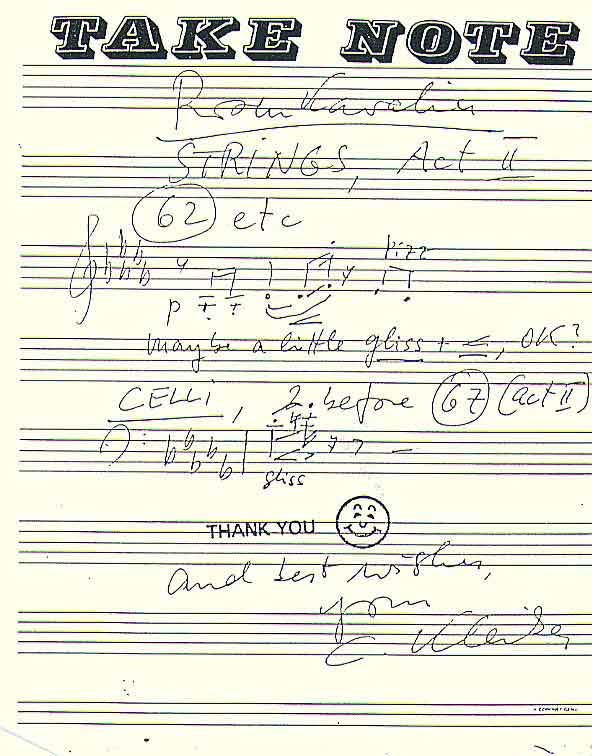
For many, Carlos Kleiber is considered to be, if not the greatest conductor, certainly one of the greatest. I have problems with such classifications in the arts because comparisons reveal nothing but subjective opinion. Without doubt, however, Kleiber’s gift as a nonverbal communicator is without parallel.
Most of what the conductor does happens before the concert and by all accounts, Kleiber was particularly great at communicating his ideas in rehearsal through imagery and inspiration. He also would frequently leave what would affectionately become known as “Kleibergrams” for his musicians and soloists between rehearsals and performance.


Here is a great video of him rehearsing Strauss’ Tritsch Tratsch Polka…It’s in German, but he’s so descriptive with his hands, there’s no need to understand what he’s talking about.
And here’s another longer video from 1970 of him rehearsing Strauss’ Die Fledermaus Overture, with English subtitles. What he’s saying has so much imagination!
Carlos Kleiber was the son of Ruth Goodrich, an American from Waterloo, IA, and Erich Kleiber, an acclaimed Austrian conductor, who had premiered Alban Berg’s opera, Wozzeck. His father discouraged him to pursue music, proclaiming to a friend, “What a pity the boy is musically talented.” Watch this fantastic documentary on Carlos Kleiber, I Am Lost To The World, on Berlin’s Philharmonic’s Digital Concert Hall.
He had a very small repertoire, but what he did conduct was always very good. The first video I ever saw of him was, ahem, a laser disc of Beethoven’s Symphony №4 and №5 with the Concertgebouw Orchestra. It is electrifyingly exciting.
Another wonderful video is of him conducting Brahms’ Symphony №2 with the Vienna Philharmonic.
There are two videos of him conducting Richard Strauss’ opera, Der Rosenkavalier. One from 1979 with the Bavarian State Opera and from 1994 with the Vienna State Opera, my personal favorite. No one conducts this with as much freedom and verve. And please watch the very end of the famous trio at the end of the opera…it’s perfectly staged.
And a vivacious La bohème from La Scala in 1979.
However, I truly relish what he did with the incredibly incritate miniatures of the polkas and waltzes of the Strauss family. I treasure both of his appearances with the Vienna Philharmonic on New Years Day of 1989
and 1992
If there was just one video that I’d use as an amuse bouche to whet someone’s appetite, it’d be this incredible performance of Strauss’ polka, Donner und Blitzen.
